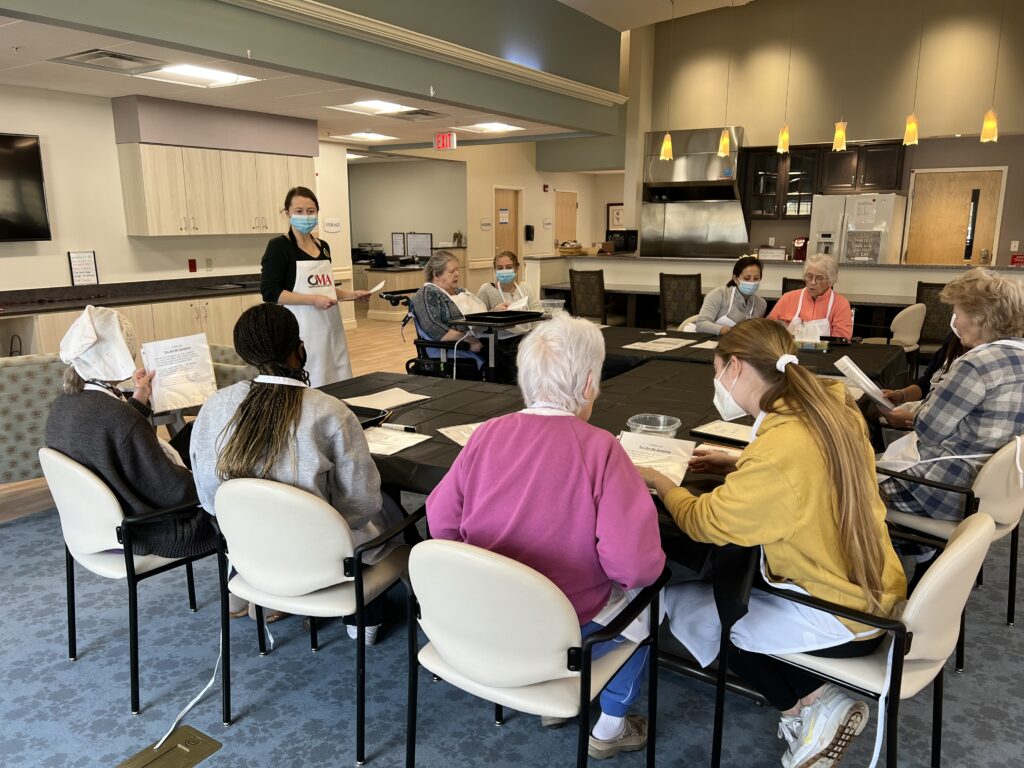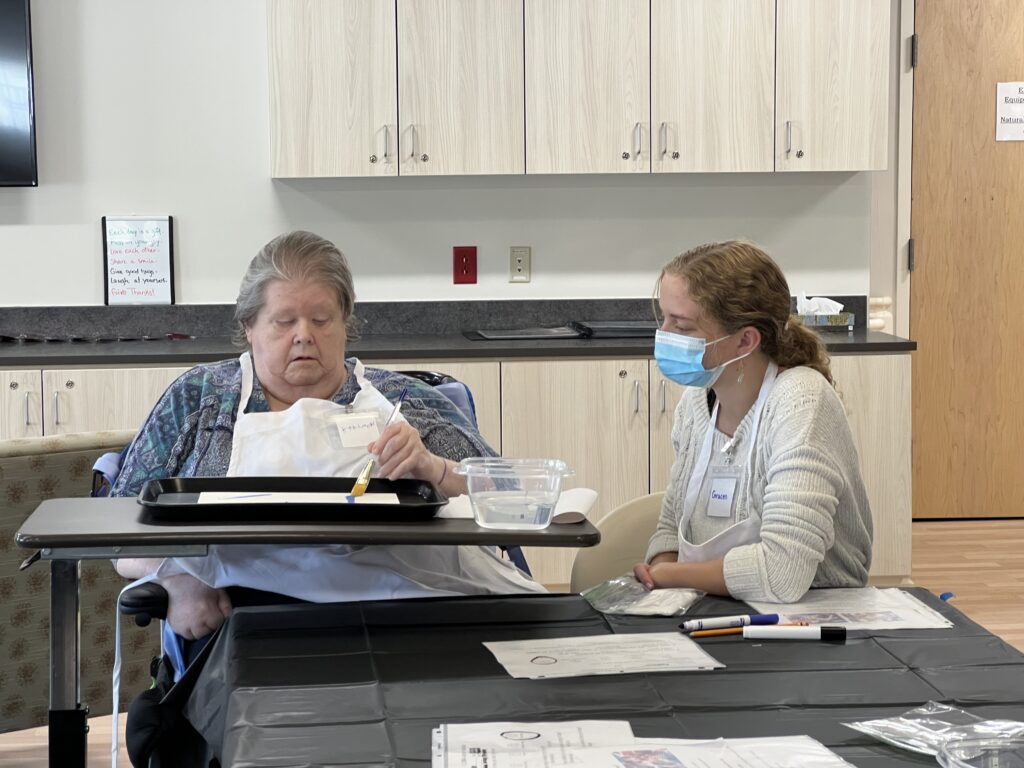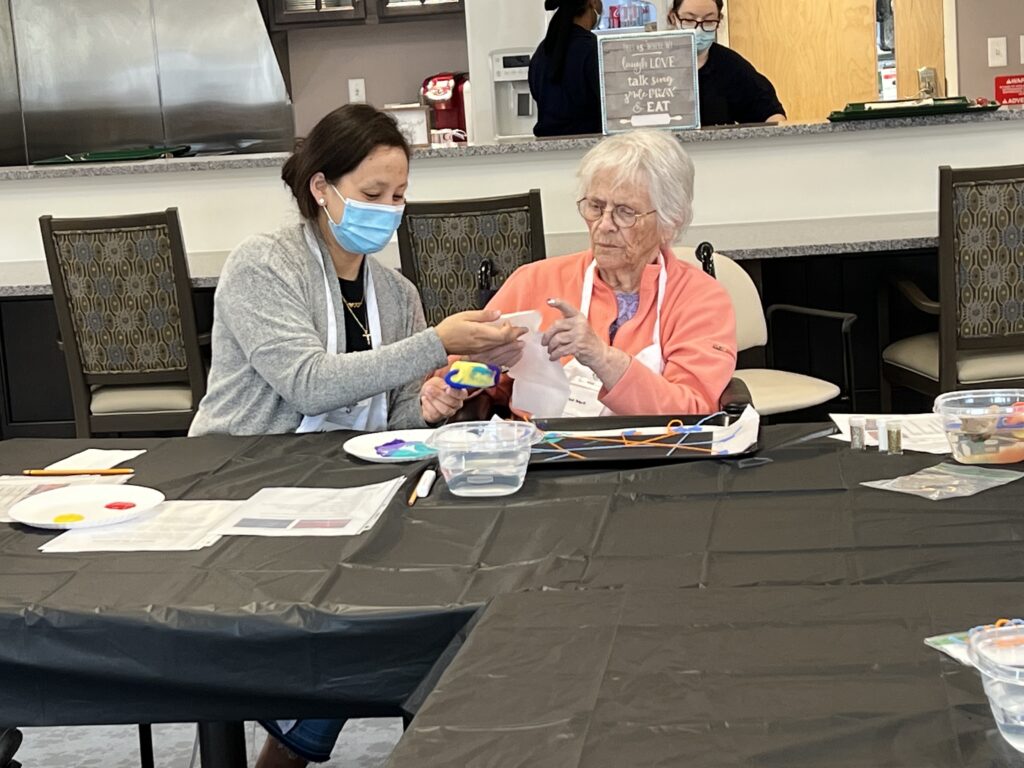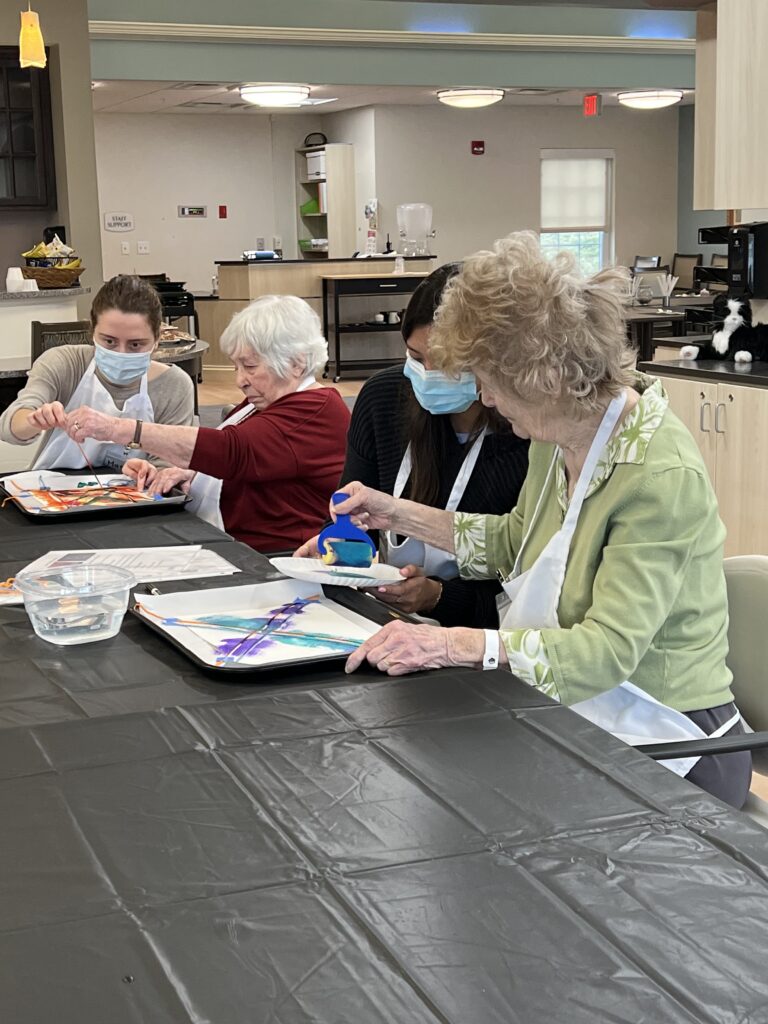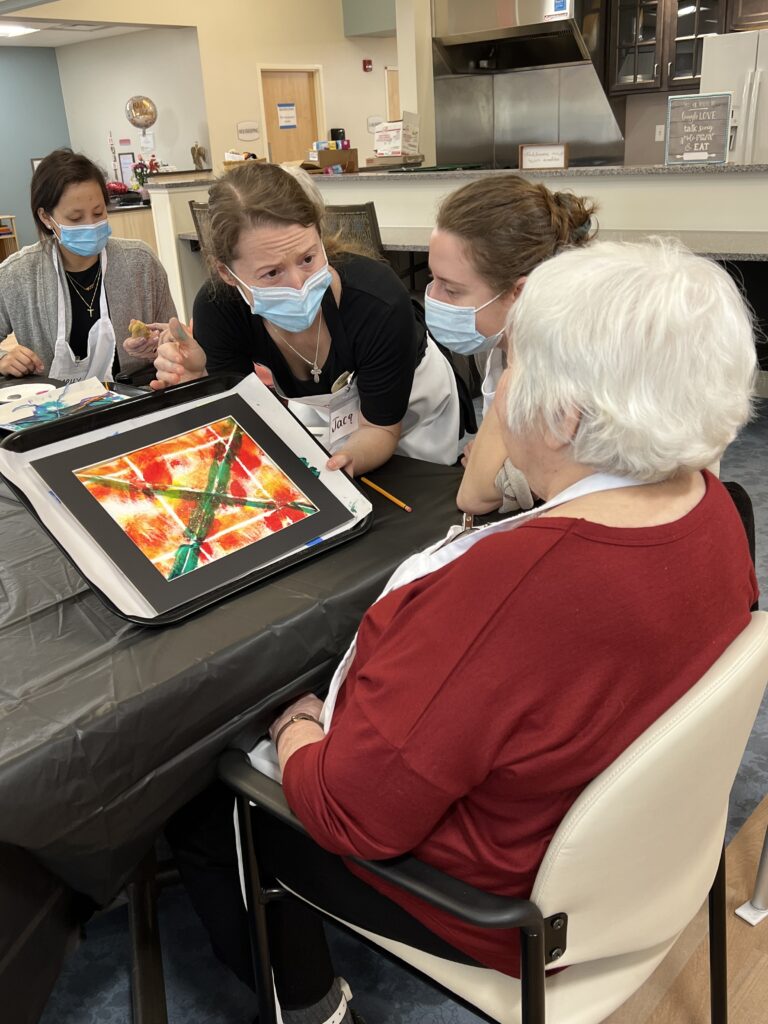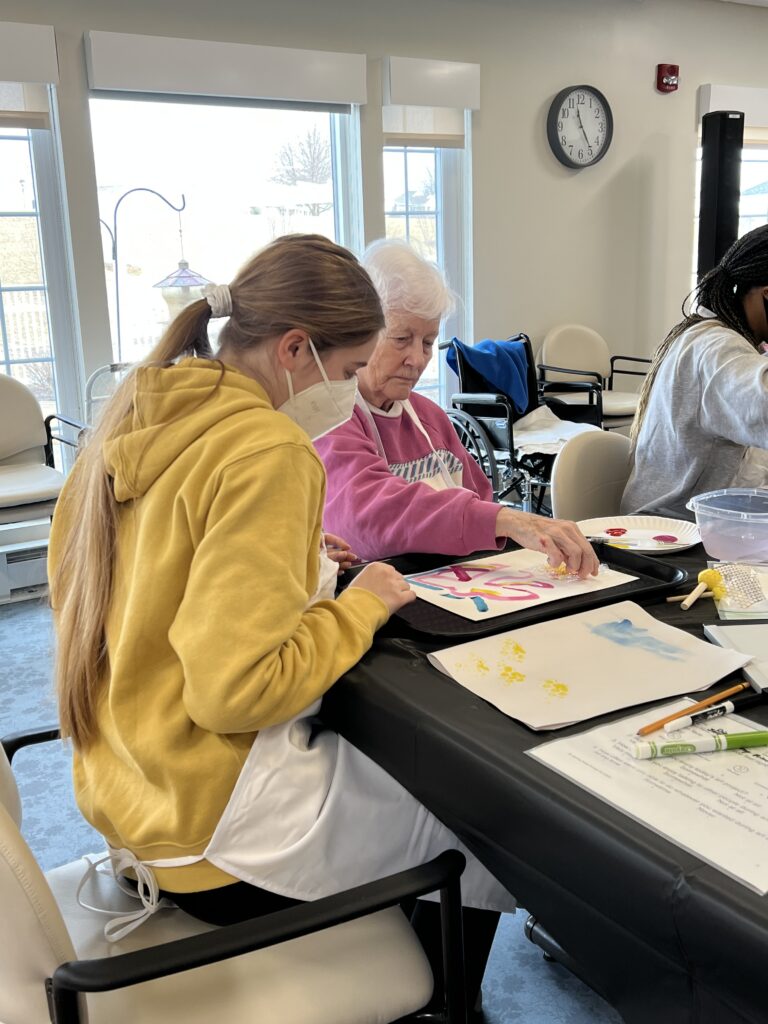May 11, 2023 —Maya Angelou said, “People will forget what you said, people will forget what you did, but people will never forget how you made them feel.”
Two Programs, One Mission
That pearl of wisdom is what drives two programs between students at nearby Washington and Lee University in Lexington, Virginia, and residents in Kendal at Lexington’s Borden Health Center.
One, the Brain Exercise Initiative (BEI), strengthens cognitive functioning with simple math, reading and writing exercises. The other, Opening Minds through Art (OMA), focuses on using seniors’ imagination and remaining strengths instead of lost skills.
Both programs bring student volunteers and seniors face-to-face to build the vital intergenerational bonds that make all participants feel important, special and loved.
“The part of the brain that holds emotion is always there,” remarked Katie Harlow, KaLex’s Resident Life Program Coordinator/Recreational Therapist.
Basic Exercises Build the Brain
In the BEI program, neuroscience and pre-med students come to the Borden Center every Friday in the morning and afternoon for about 45 minutes to work with residents with dementia and those not experiencing cogntive declines on basic arithmetic, reading aloud, and writing exercises combined with trivia. They assure residents that even though the exercises may seem too easy, problems done quickly activate the prefrontal cortex of the brain (the part responsible for memory, planning and cognition).
Developed by Japanese neuroscientist Dr. Ryuta Kawashima, who discovered that 30 minutes of math, reading and writing five days a week greatly improves brain function, BEI has over 80 chapters of university student volunteers working with residents in hundreds of senior communities around the world.
One of those chapters is at Washington and Lee, where a student approached Kendal staff a year and half ago about doing the planned exercises with Borden residents on an ongoing basis.
“We were very excited about their willingness,” said Katie, “and so are the residents. They are thrilled that the students want to be there just for them.”
Art Opens Minds
The OMA program is the result of a grant applied for and awarded to Kendal through LeadingAge, a national community of non-profit aging services providers. Resident Life Program Assistant Jacquelyn Wheeler reached out to Washington and Lee for student volunteers.
Several were eager to pair one-on-one with the same resident for several weeks to work on various pieces of abstract art. Students, staff and residents also join in opening and closing songs, and Jacquelyn provides artists with step-by-step demonstrations of each project.
At the end of the OMA program, residents display their work(s) of choice in an art show at Kendal open to family and friends.
“It’s not necessarily the final art project that matters; it’s the process,” said Katie, noting that residents’ scaled rating of how they’re feeling at the beginning and end of each session almost always goes up.
Students evaluate the program as well for how appropriately it is planned for the different stages of dementia.
Bridging the Ages
Katie is hopeful that the BEI and OMA programs will expand to Independent Living and Assisted Living at Kendal in the future. “Whether someone has dementia or not, stimulating the body and brain throughout the aging process is only going to help them,” she said.
And the emotional benefits of intergenerational relationships are undeniable.
“You can just see it – the whole atmosphere changes when young people want to be there forming bonds with older adults.”
